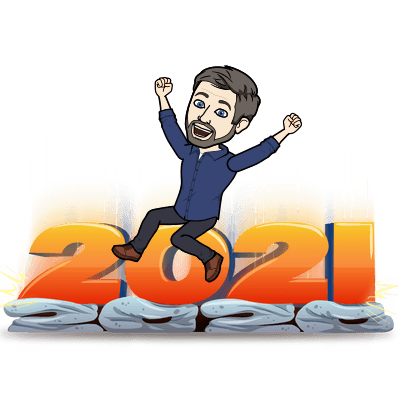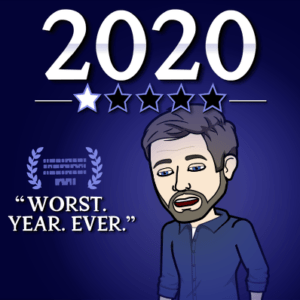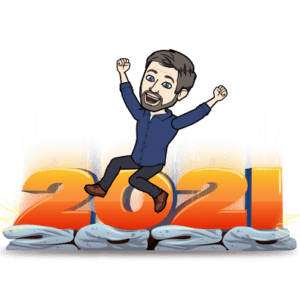What will 2021 look like? How might we embrace 2021 with hope so that we can thrive in the new year as educators?
This is a question that I’ve been asking myself for quite some time now. My big project has been focusing on Digital Transformation and making it as human as possible. To do this, I’ve been leaning into the work of Marc Brackett, Brene Brown, and Stuart Shanker as well as some great article being sent to me from colleagues in and outside of my school. One piece that I keep coming up against is how to make this human in amongst the very human experiences and emotions and challenges that we are facing in the here and now.
On a long walk with my dog this weekend, I listened to Brene Brown’s interview with Barak Obama on “Unlocking Us“. In it, they talk about how it is important for leaders to make the cognitive and emotional space to keep two, or more, opposing ideas in consideration and for a duration, in order to make good decisions – not  perfect decisions – but good ones. They talk about the ‘why’ and the importance of communicating that why to all involved in the community. By holding this space, you welcome the acknowledgement of blind spots, and the support to shed light on those blind spots; you welcome empathy and different perspectives; and, you welcome humility in the way that you make and carry out decisions. I love this!
perfect decisions – but good ones. They talk about the ‘why’ and the importance of communicating that why to all involved in the community. By holding this space, you welcome the acknowledgement of blind spots, and the support to shed light on those blind spots; you welcome empathy and different perspectives; and, you welcome humility in the way that you make and carry out decisions. I love this!
One piece stuck out at me, and it was a reference to the “The Stockdale Paradox“, and why confronting reality is so important to success. This emerged in popular context out of the book “Good to Great” when James Stockdale, a naval office and POW from the Vietnam war, was asked “Who were those that didn’t make it out from the POW experience?” and he answered, “The optimists…” Those that tried to avoid the here and now, by focusing on a brighter future.
You must never confuse faith that you will prevail in the end – which you can never lose – with the discipline to confront the most brutal facts of your current reality, whatever they might be. (Stockdale)
It is about hoping for the best, but preparing for the worst.
So, how do we embrace 2021 in a way that we can thrive? First, I reckon that we embrace it together, within the Cohort 21 tribe, and with our colleagues. Next, I think that we have to acknowledge that things are going to be different going forward – that the breadcrumbs back to what education was and what we were doing, are gone. Next, I think that we have to be realistic that the role of educators have changed, not the WHY, but the how.
What approaches can you suggest? @tfaucher @amacrae @jmedved @ckirsh @lmcbeth @edaigle @ddoucet @nblair @lbettencourt @acampbellrogers @adamcaplan
PS: Saw this great saying as a title of a book on the street during this same walk with my dog: “Solutions, and other problems” I thought, I would share with the group that knows, so well, that coming at problems with solutions is a problem in and of itself.


